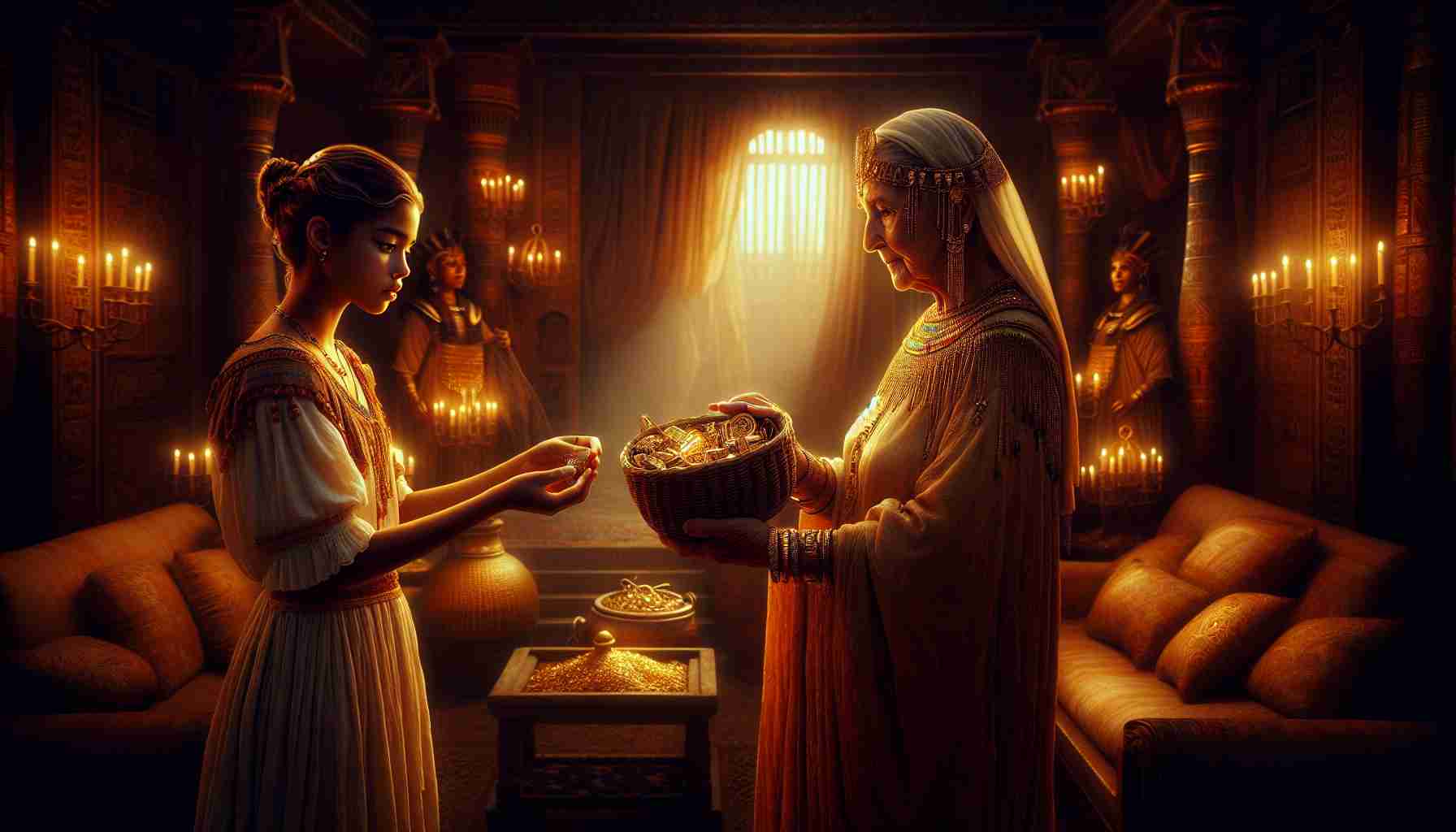

I still feel the weight of that gold bracelet in my hand, though it's been many moons since I left Egypt. My name is Betzalel, son of Dov, and I was born a slave. I don’t know what freedom tasted like until Pharaoh’s stubborn heart was finally cracked open by God’s might. But on the night of our Exodus, I learned what faith looked like—shining in the firelight like lent gold.
The days before our departure were strange and tense. Moses, our leader and prophet, came back from another meeting with Pharaoh and told us what God had said: “Speak now in the hearing of the people, that every man borrow from his neighbor, and every woman from hers, objects of silver and gold.” That command is written in Shemot—also called Exodus—chapter 11, verse 2.
Borrow? I remember the word stung my pride. How do you borrow from someone who forced you to carry bricks under the licking sun? How do you trust such people?
My wife, Dinah, who always saw what I couldn’t, nudged me, “It’s not about them. It’s about what God asked us to do. You want to be free? Then act like it—trust Him.”
So I knocked on the tall wooden door of our Egyptian master’s home. When it opened, my knees nearly buckled. I half expected a slap, or curses. But his eyes looked different—frightened almost.
“I need… some silver,” I mumbled, holding Dinah’s basket. “And gold, if you have it.”
To my shock, he rushed inside without a fight, returning with an urn of glittering objects. His hands trembled. “Take it. Take whatever you need. Just… go.”
I almost refused out of habit, thinking I’d pay for this later with lashes. But I saw the tears in his eyes and realized—this wasn’t pity. It was fear. Fear of a God mightier than Egypt.
Back in the camp, everyone buzzed with the same disbelief. We walked from house to house, gathering wealth. Each time, the Egyptians gave freely, begging us to leave. The gold I once saw only glinting from Pharaoh’s chariot now lay folded in rags and tucked into baskets. We had nothing, and now we had plenty.
Later that night, as we prepared to leave, I sat by the fire beside Dinah. “I wonder why God told us to ask for gold and silver,” I said.
She smiled, running her fingers over an engraved bangle. “Maybe so we wouldn’t just leave as slaves freed—but as a people restored. With dignity.”
And perhaps she was right. The treasure wasn’t just metal. It was the proof that our suffering didn’t go unseen. It was God’s justice made visible. Egypt had taken everything from us. That night, we did not steal—we reclaimed.
I still carry that bracelet, even now in the desert. Not for its shine, but as a witness. A reminder that God doesn’t just free His people. He lifts them, restores them, and sends them out not empty-handed—but honored.
I still feel the weight of that gold bracelet in my hand, though it's been many moons since I left Egypt. My name is Betzalel, son of Dov, and I was born a slave. I don’t know what freedom tasted like until Pharaoh’s stubborn heart was finally cracked open by God’s might. But on the night of our Exodus, I learned what faith looked like—shining in the firelight like lent gold.
The days before our departure were strange and tense. Moses, our leader and prophet, came back from another meeting with Pharaoh and told us what God had said: “Speak now in the hearing of the people, that every man borrow from his neighbor, and every woman from hers, objects of silver and gold.” That command is written in Shemot—also called Exodus—chapter 11, verse 2.
Borrow? I remember the word stung my pride. How do you borrow from someone who forced you to carry bricks under the licking sun? How do you trust such people?
My wife, Dinah, who always saw what I couldn’t, nudged me, “It’s not about them. It’s about what God asked us to do. You want to be free? Then act like it—trust Him.”
So I knocked on the tall wooden door of our Egyptian master’s home. When it opened, my knees nearly buckled. I half expected a slap, or curses. But his eyes looked different—frightened almost.
“I need… some silver,” I mumbled, holding Dinah’s basket. “And gold, if you have it.”
To my shock, he rushed inside without a fight, returning with an urn of glittering objects. His hands trembled. “Take it. Take whatever you need. Just… go.”
I almost refused out of habit, thinking I’d pay for this later with lashes. But I saw the tears in his eyes and realized—this wasn’t pity. It was fear. Fear of a God mightier than Egypt.
Back in the camp, everyone buzzed with the same disbelief. We walked from house to house, gathering wealth. Each time, the Egyptians gave freely, begging us to leave. The gold I once saw only glinting from Pharaoh’s chariot now lay folded in rags and tucked into baskets. We had nothing, and now we had plenty.
Later that night, as we prepared to leave, I sat by the fire beside Dinah. “I wonder why God told us to ask for gold and silver,” I said.
She smiled, running her fingers over an engraved bangle. “Maybe so we wouldn’t just leave as slaves freed—but as a people restored. With dignity.”
And perhaps she was right. The treasure wasn’t just metal. It was the proof that our suffering didn’t go unseen. It was God’s justice made visible. Egypt had taken everything from us. That night, we did not steal—we reclaimed.
I still carry that bracelet, even now in the desert. Not for its shine, but as a witness. A reminder that God doesn’t just free His people. He lifts them, restores them, and sends them out not empty-handed—but honored.